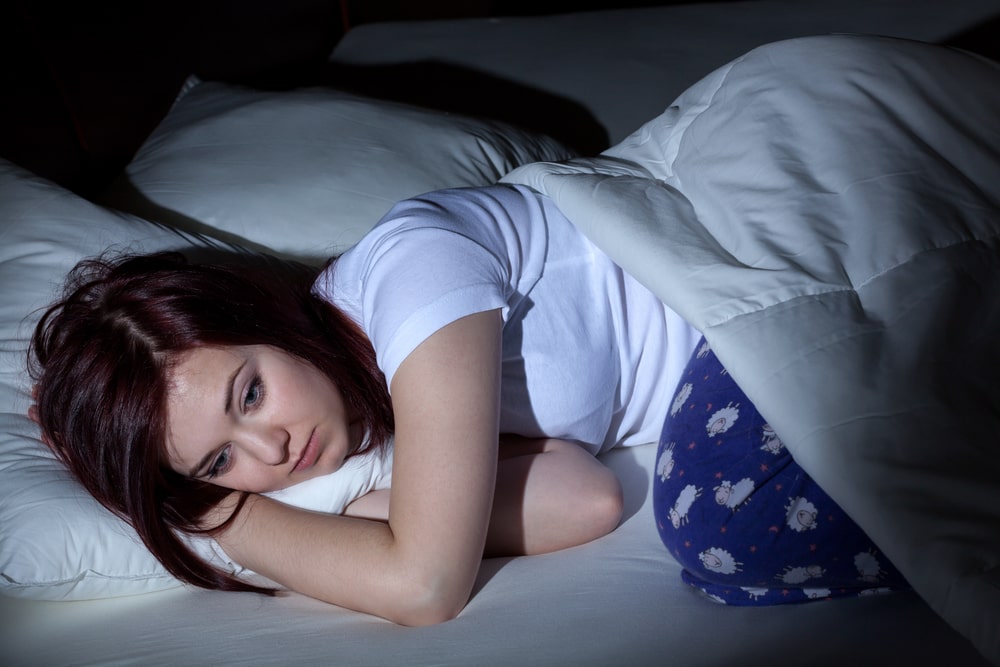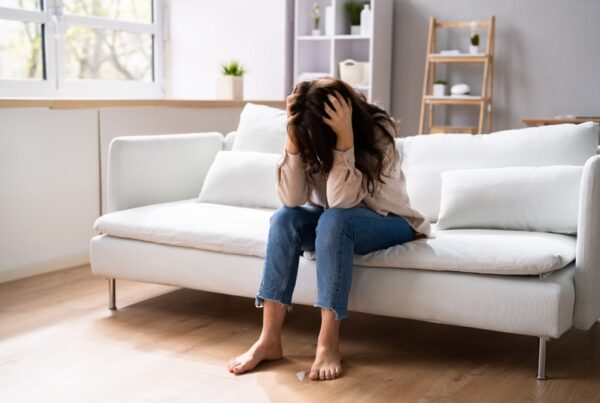The connection between sleep and anxiety is intricate and bidirectional. Anxiety can contribute to sleep disturbances, while inadequate or poor-quality sleep can exacerbate anxiety symptoms. Understanding this relationship is crucial for managing both conditions effectively.
Anxiety’s Impact on Sleep
Individuals grappling with anxiety frequently encounter challenges falling asleep due to racing thoughts and heightened arousal, creating a barrier to relaxation. Additionally, anxiety may result in frequent nighttime awakenings, with individuals waking up burdened by worries or struggling to return to sleep. The physical and mental restlessness associated with anxiety further complicates the pursuit of restful sleep, interrupting the ability to achieve a peaceful night’s rest. Furthermore, anxiety can contribute to the occurrence of vivid and distressing dreams or nightmares, leading to disruptions in sleep and leaving individuals waking up with heightened feelings of anxiety.
Sleep Deprivation and Its Impact on Anxiety
Chronic sleep deprivation has the potential to escalate anxiety symptoms, as the brain becomes more vulnerable to stressors, compromising emotional regulation. Inadequate sleep can heighten emotional reactivity, making individuals more susceptible to anxiety-provoking situations. Furthermore, sleep deprivation negatively impacts cognitive functions such as attention, memory, and decision-making, potentially magnifying feelings of anxiety and stress. The physical consequences of insufficient sleep are also significant, manifesting as fatigue, muscle tension, and an increased susceptibility to physical stressors—all of which can contribute to heightened anxiety levels.
Strategies for Managing Anxiety and Improving Sleep
Addressing both anxiety and sleep requires a holistic approach. In the pursuit of holistic well-being, implementing effective strategies for managing anxiety and improving sleep is paramount to fostering a balanced and healthy lifestyle. Consider the following suggestions:
- Establish a Consistent Sleep Schedule:
- Stick to a regular sleep routine by going to bed and waking up at the same time every day, even on weekends.
- Create a Relaxing Bedtime Routine:
- Engage in calming activities before bedtime, such as reading, gentle stretching, or practicing relaxation techniques like deep breathing.
- Limit Stimulants and Electronics:
- Reduce consumption of caffeine and avoid stimulants in the hours leading up to bedtime. Limit screen time before sleep to mitigate the impact of blue light on circadian rhythms.
- Design a Comfortable Sleep Environment:
- Ensure your bedroom is conducive to sleep by keeping it cool, dark, and quiet. Invest in a comfortable mattress and pillows.
- Practice Mindfulness and Relaxation:
- Incorporate mindfulness meditation or progressive muscle relaxation into your daily routine to manage stress and promote relaxation.
- Physical Activity:
- Engage in regular physical activity, but try to complete vigorous exercise earlier in the day. Exercise can contribute to better sleep and reduced anxiety.
- Limit Worries Before Bed:
- Set aside time earlier in the day to address worries or create a to-do list. This can help prevent rumination at bedtime.
- Consider Professional Help:
- If anxiety or sleep difficulties persist, consider seeking help from a mental health professional. Cognitive-behavioral therapy for insomnia (CBT-I) and other therapeutic interventions can be beneficial.
- Avoid Excessive Napping:
- Limit daytime napping, especially in the late afternoon or evening, to avoid disrupting your nighttime sleep.
- Evaluate Sleep Environment:
- Ensure that your sleep environment is comfortable and free of potential disruptions, such as noise or uncomfortable bedding.
- Explore Sleep Supplements:
- Consult with a healthcare professional before trying sleep supplements or medications. They can provide guidance on safe and effective options.
By implementing strategies to manage anxiety and improve sleep hygiene, individuals can break the cycle of sleep disruption and anxiety, promoting overall well-being.
Treatment In Calabasas
Calabasas is a city in California. It is a well-known suburb of Los Angeles, located west of the San Fernando Valley and north of the Santa Monica Mountains. Over the past decade, the city of Calabasas has grown in its reputation for luxury as well as for privacy which makes it a hidden gem for residential living for society’s elite, and one of the most desirable destinations in Los Angeles County. It is also home to a plethora of highly qualified mental health clinicians providing an array of therapeutic services and treatment options.
The information above is provided for the use of informational purposes only. The above content is not to be substituted for professional advice, diagnosis, or treatment, as in no way is it intended as an attempt to practice medicine, give specific medical advice, including, without limitation, advice concerning the topic of mental health. As such, please do not use any material provided above to disregard professional advice or delay seeking treatment.




